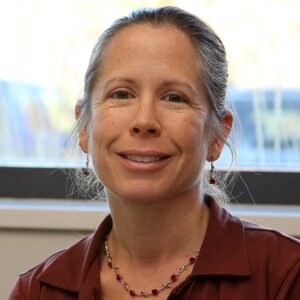This calendar features events relevant to global health from throughout the Rutgers community. To inquire about listing your event, contact us at communications@globalhealth.rutgers.edu.

- This event has passed.
Landscape of Enteric Pathogen Transmission and Child Health in Underdeveloped Settings: Applying One Health Principles for the Prioritization and Evaluation of Global Health Programs
March 10, 2022 @ 2:00 pm - 3:00 pm
Rutgers Global Health Institute is hosting a guest faculty seminar at 2 p.m. on Thursday, March 10, 2022, as part of its Viewpoints in Global Health Research: Guest Faculty Seminar Series.
This online seminar will be presented by:
Kelly Baker
Department of Occupational and Environmental Health and Department of Epidemiology, University of Iowa College of Public Health
Landscape of Enteric Pathogen Transmission and Child Health in Underdeveloped Settings: Applying One Health Principles for the Prioritization and Evaluation of Global Health Programs
Eliminating enteric infections is essential for triggering epidemiological transitions in population health in developing countries where disease burden remains high. Enteric infections encompass a complex disease transmission ecology, including dozens of unique pathogenic agents spread by a variety of zoonotic and human disease vectors through many environmental and behavioral transmission pathways. Such complex transmission ecology requires collaborative, transdisciplinary One Health approaches to achieve disease elimination.
In this seminar, Baker will discuss the implications of her recent research in Kenya on effective interventions for preventing enteric infections in children. The integrated Safe Start and Market 2 Mouth studies examined the interplay between safety of packaged food products and caregiver food hygiene practices in exposure and infection of low-income infants. She also will discuss the Fogarty-funded PATHOME study, which is generating extensive climate, economic, spatial, environmental, behavioral, and human and animal infection data in urban neighborhoods of Kenya for constructing a virtual lab that can predict which investments in societal development best trigger the collapse in enteric disease burden. Such virtual labs can address a critical evidence gap for decision making where logistically complex interventions are impractical.
About the Presenter
Kelly K. Baker is an assistant professor in the Department of Occupational and Environmental Health at the University of Iowa College of Public Health, with a secondary appointment in the Department of Epidemiology. Her research aims to identify socio-developmental interventions that prevent adverse birth outcomes, enteric infections, and malnutrition in young children living in underdeveloped communities.
Her studies, including the Fogarty-funded PATHOME study in urban Kenya, integrate infectious disease epidemiology and exposure assessment study designs to address mechanistic questions about pathogen transmission, bridging the disciplines of clinical and environmental microbiology, human behavior, zoonotic vectors, food safety, and geography. Other recent studies include the Department for International Development- and CGIAR-funded Safe Start and Market 2 Mouth studies exploring the role of food supply versus household food hygiene behaviors in control of foodborne infections in infants in Kenya, and studies on sanitation and water-related poverty and health outcomes among pregnant women and mothers in India and Nigeria.
Baker teaches the undergraduate course Global Public Health and the graduate course Global Water and Health, and she has advised postdoctoral, graduate (public health and engineering), undergraduate, and medical students. She serves on the College of Public Health’s Diversity, Equity, and Inclusion Committee and is a core faculty member of a National Institutes of Health- and National Science Foundation-funded program supporting education and training opportunities for underrepresented minorities in science. Nationally, she serves on the National Academies of Medicine’s Board of Global Health and the American Society of Tropical Medicine and Health’s Global Health Committee. Her long-term goals are to expand her long-standing partnerships in East Africa into a center that can implement transdisciplinary and longitudinal research and training at the intersection of climate, global urban health, and social resiliency in the United States and Africa.
Online via Zoom
Free and open to the public. For more information, email info@globalhealth.rutgers.edu. For more events, visit the seminar series page on the Rutgers Global Health Institute website or explore the institute’s full online calendar.
View all events in this series